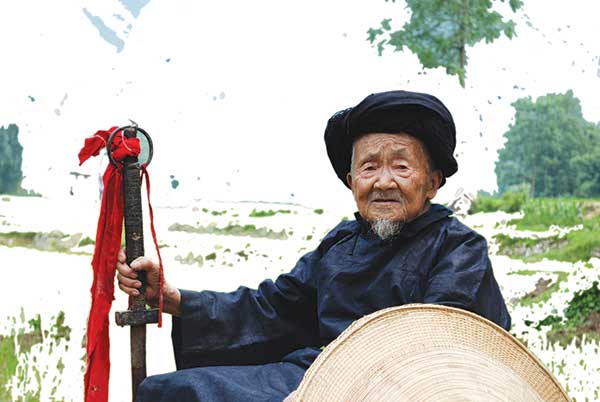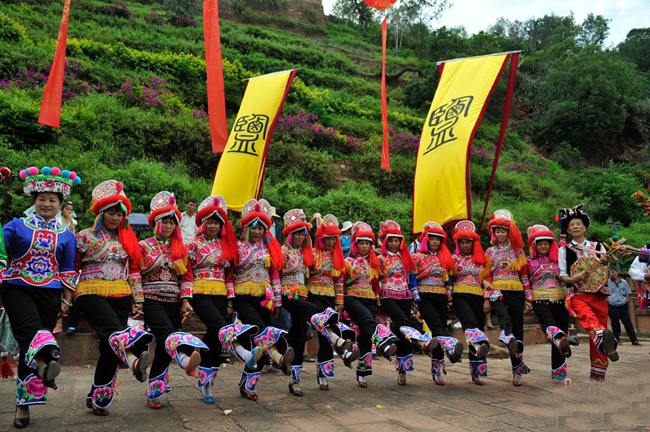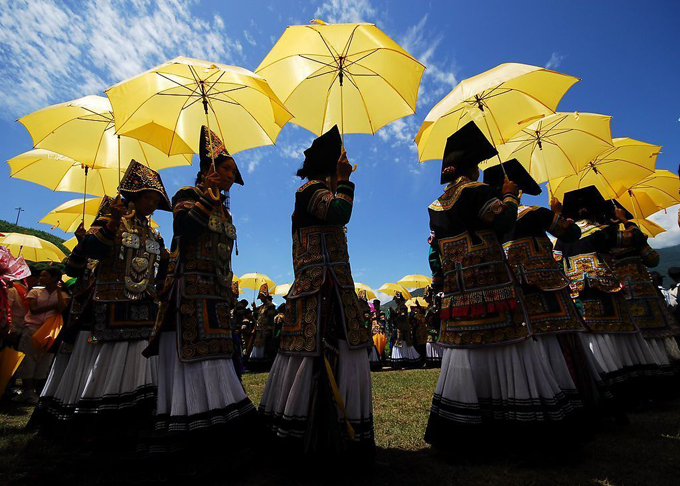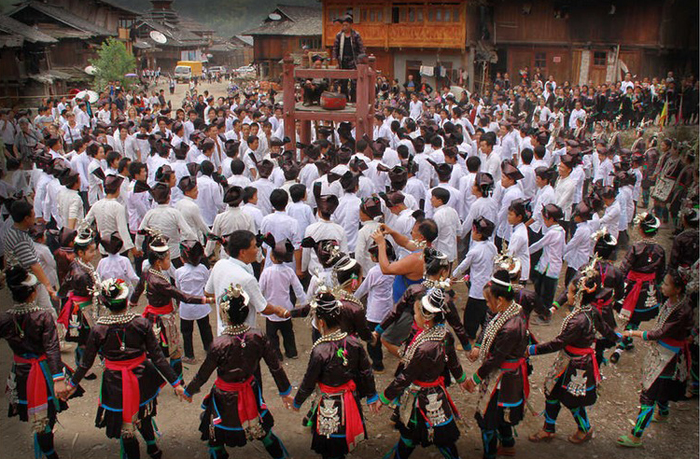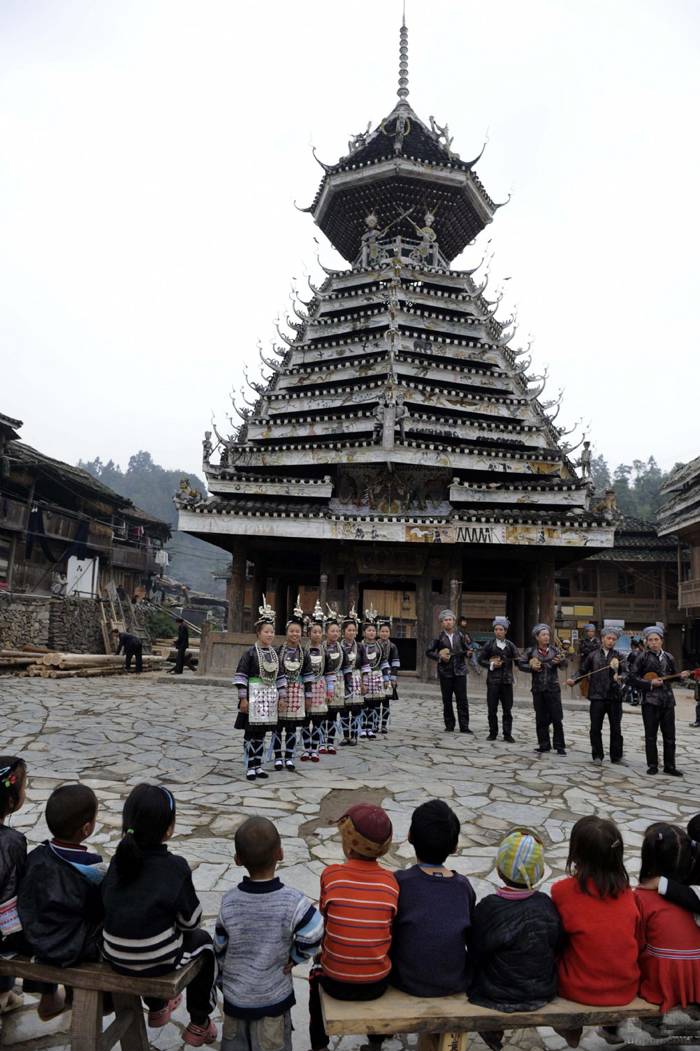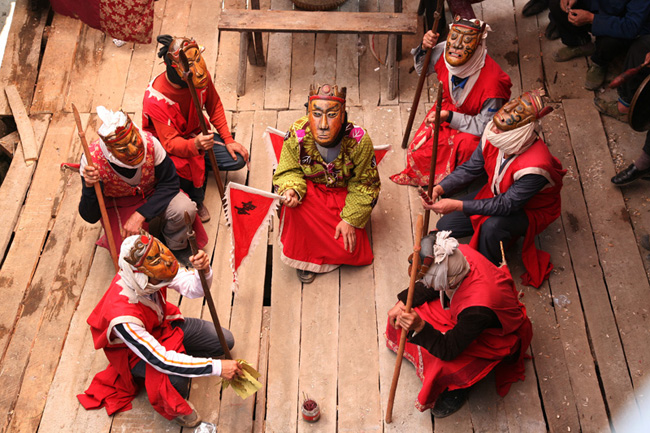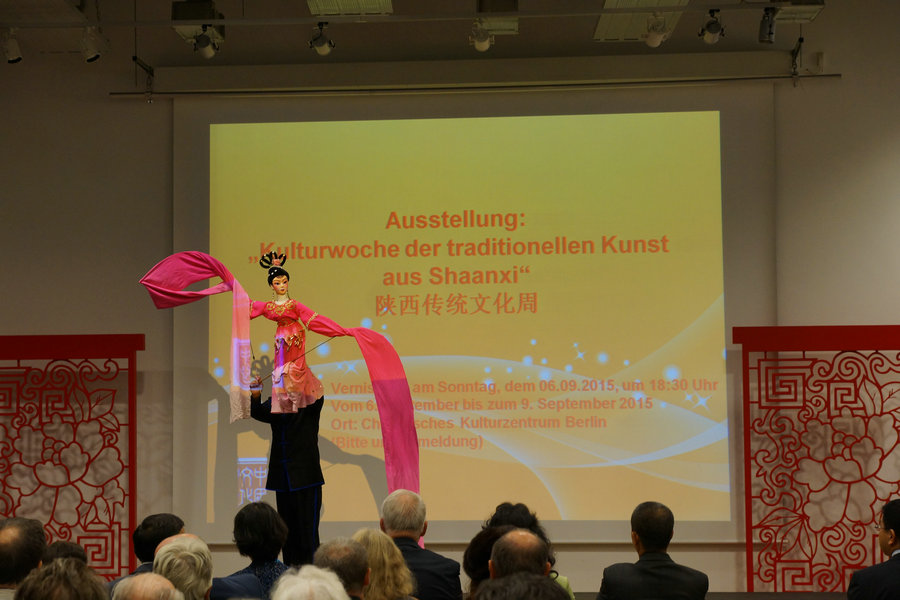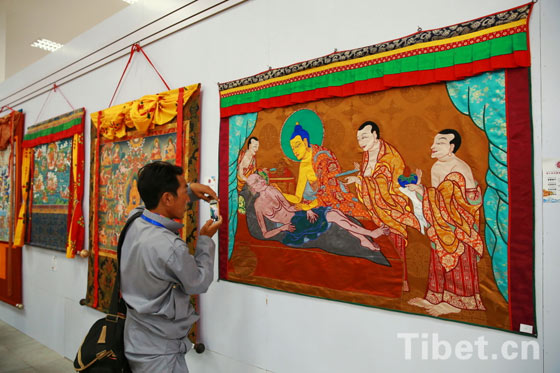Folk singer pushes to preserve the voice of a Miao epic
2015-09-10 17:27:26 Author:culture Source:National culture Browse number:0 Comment 0 A
Chen Xinghua's childhood idol was his late uncle, Wei Changxiu - an esteemed folk singer in Daha, a mountainous and isolated village located in Ziyun county, Guizhou province.
What makes Wei and other dong lang legendary is that they chant epic songs about their perceived common ancestor, King Yalu, in old Miao language that has been passed down for hundreds of generations.
With its cultural value equaling that of three other Chinese ethnic epics - the Tibetan King Gesar, the Mongolian Jianggar and the Kirgiz Manas - King Yalu is also sung at funerals.
Since childhood, Chen had followed his uncle to funerals, where Wei would conduct the rites and sing King Yalu for days in memory of the departed.
Folk singers were invited to present a part of the song at festivals, too.
"I was fascinated with the songs. I didn't understand a word he (Wei) sang, but it seemed like I knew every word," recalls Chen, who is 71 now.
When he turned 16, Chen learned to sing King Yalu as his uncle narrated how the king fought in wars and built his kingdom.
"My uncle once told me: 'If you cannot sing King Yalu, you will live your life in vain as ethnic Miao'," Chen recalls.
Chen is among the very few surviving singers of the song. The folk tradition is fading, with very few young people keen to carry on in the face of rapid modernization.
On July 30, Huang Laojin, who was considered the only living dong lang capable of singing King Yalu in its entirety, died in Gejing village in Ziyun county, aged 99.
Huang was known for his singing of all the six battlefield scenes from King Yalu.
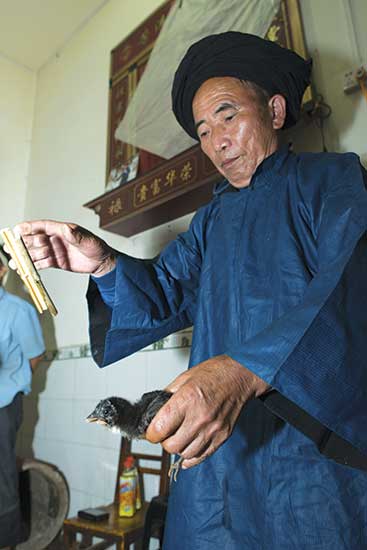 |
|
[Photo provided to China Daily] |
"He was a very established dong lang, and his death is a big loss to the tradition," Chen says of Huang.
These days, some funerals of Miao ethnic people still have parts of the song but not all of it.
"I am afraid the tradition will be dead someday," Chen says. "I spent my whole life translating those songs. For me, they are priceless. I hope to pass them to the young generation."
There are around 3,000 dong lang among the 300,000 people in Western Guizhou's impoverished Mashan area, says Yang Zhengjiang, director of King Yalu Cultural Research Center founded by the Ziyun government in October 2009.
The tradition of dong lang has persisted in the area for centuries.
Yang started researching King Yalu after he graduated from Guizhou Minzu University in 2002.
Since 2009, the 32-year-old ethnic Miao has interviewed around 3,000 dong lang, including Huang, to record video and audio about King Yalu.
The old man left a deep impression on Yang by singing King Yalu for five days straight.
"Most dong lang are very old. Once they are gone, the history of King Yalu and even Miao culture will be forgotten," says Yang.
In 2009, the epic King Yalu was included on the State-level Intangible Cultural Heritage list. In 2012, with the help of the Chinese Folk Literature and Art Society, King Yalu was published in written form for the first time.
By 2014, Yang had helped set up 17 teaching and learning centers to protect the folk epic in five towns in Ziyun. He hopes to do more in the future to preserve the past.
Yang Jun contributed to the story
On A: Diverse Chinese performances light up Helsinki Festival
Next article: Traditional 'Anzhaonadun' festival celebrated in Qinghai


